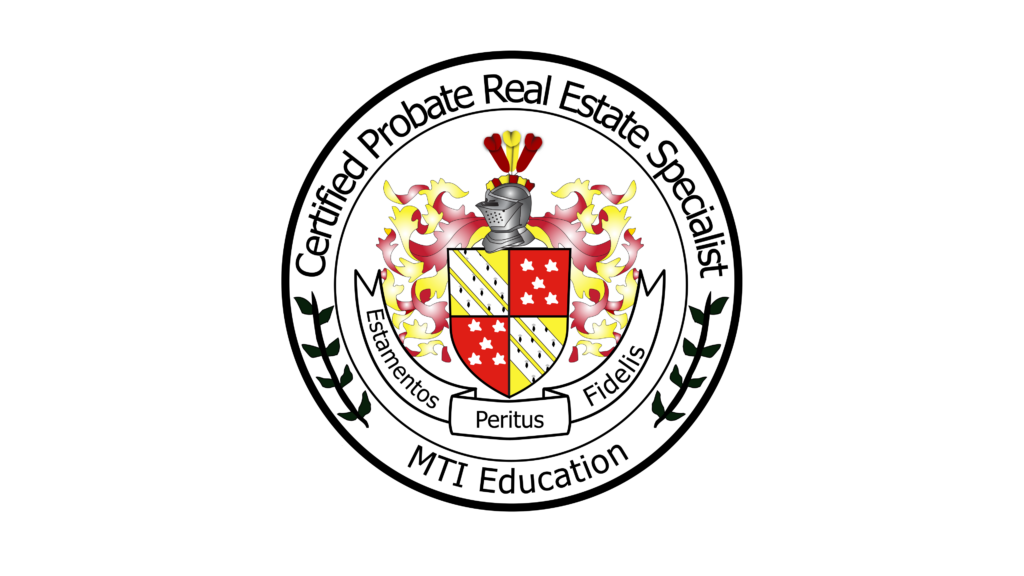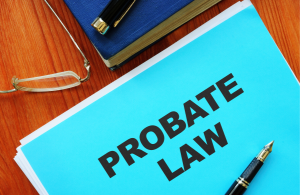11 – Probate Claims of Exemption

Certified Probate Real Estate Specialist in Florida

How to Protect Your Minor Beneficiaries from Probate Claims of Exemption
Probate is the legal process that occurs after a person dies. It involves the distribution of their assets and the settling of their debts. However, if the assets are being transferred to a minor, the process can become more complicated, especially if the transfer is subject to a Probate Claim of Exemption. This type of claim can be filed by a creditor of the decedent or by someone who believes they have a legal right to the assets. In such cases, the transfer of assets to a minor may be delayed, causing unnecessary stress and a financial burden on the beneficiaries.
Fortunately, there are ways to protect your minor beneficiaries from Probate Claims of Exemption. In this article, we will explore some of the best practices and legal options available for transferring assets to minors. From establishing trusts to creating custodial accounts, we’ll cover everything you need to know to secure your loved ones’ future.
Understanding Probate Claim of Exemption
Before we delve into the various ways to protect your minor beneficiaries from Probate Claims of Exemption, it’s essential to understand what this legal term means. In simple terms, a Probate Claim of Exemption is a legal proceeding that allows a creditor or a claimant to recover unpaid debts from the decedent’s estate. The claim can also be filed by someone who believes they have a legal right to the assets, such as a family member who was left out of the will.
In most cases, Probate Claims of Exemption are filed by creditors who are owed money by the decedent. For example, if the decedent had outstanding medical bills or credit card debt, the creditor can file a claim against their estate to recover the unpaid amount. The Probate Court will then review the claim and determine whether it is valid. If it is, the claim will be paid out of the decedent’s estate before any assets are distributed to the beneficiaries.
However, if the assets are being transferred to a minor, the Probate Claim of Exemption can delay the process, as the court will need to review the claim and determine whether it is valid. This can be a time-consuming and expensive process, causing unnecessary stress and financial burden on the beneficiaries.
Protecting Your Minor Beneficiaries
Fortunately, there are several ways to protect your minor beneficiaries from Probate Claims of Exemption. Below are some of the most effective methods:
Establishing a Trust
One of the best ways to protect your minor beneficiaries from Probate Claims of Exemption is to establish a trust. A trust is a legal entity that holds assets for the benefit of the beneficiaries. By creating a trust, you can transfer assets to your minor beneficiaries without subjecting them to Probate Claims of Exemption.
When you establish a trust, you transfer the assets to the trust, and the trustee manages the assets on behalf of the beneficiaries. The trustee is responsible for ensuring that the assets are used for the beneficiaries’ benefit and that the assets are distributed according to your wishes.
There are several types of trusts you can establish, including revocable trusts, irrevocable trusts, and testamentary trusts. Each type of trust has its advantages and disadvantages, so it’s essential to consult with an experienced estate planning attorney to determine which type of trust is best for your situation.
Creating a Custodial Account
Another option for transferring assets to your minor beneficiaries is to create a custodial account. A custodial account is a type of investment account that is established for a minor beneficiary. The account is managed by a custodian, who is responsible for managing the assets until the minor reaches the age of majority.
When you create a custodial account, you can transfer assets to the account without subjecting them to Probate Claims of Exemption. The assets in the account are managed on behalf of the minor, and the custodian is responsible for investing the assets wisely and distributing the assets when the minor reaches the age of majority.
Custodial accounts can be established under the Uniform Gifts to Minors Act (UGMA) or the Uniform Transfers to Minors Act (UTMA). These acts provide a framework for transferring assets to minors and allow for tax advantages under certain circumstances.
Designating a Guardian
Another important step in protecting your minor beneficiaries is to designate a guardian. A guardian is a person who is appointed to care for the minor if the parent or legal guardian passes away or is unable to care for the minor. By designating a guardian, you can ensure that your minor beneficiaries are cared for and protected.
When you designate a guardian, you should consider their ability to care for the minor, their relationship with the minor, and their financial stability. You should also consider whether the guardian is willing to take on the responsibility of caring for the minor.
Choosing a Beneficiary Designation
Finally, when transferring assets to minors, it’s essential to choose the right beneficiary designation. A beneficiary designation is a legal document that identifies who will receive the assets upon the decedent’s death. By choosing the right beneficiary designation, you can ensure that your assets are distributed according to your wishes and that your minor beneficiaries are protected.
There are several types of beneficiary designations, including revocable and irrevocable designations. It’s essential to consult with an experienced estate planning attorney to determine which type of designation is best for your situation.
Pros and Cons of Trusts and Custodial Accounts
When it comes to protecting your minor beneficiaries from Probate Claims of Exemption, establishing a trust or creating a custodial account are two of the most effective options. However, each option has its advantages and disadvantages, as outlined below:
Trusts
Pros:
- Provides more control over the assets
- Can specify how and when the assets are distributed
- Can protect the assets from creditors and lawsuits
- Can reduce estate taxes
Cons:
- Can be more expensive to establish and maintain
- Requires a trustee to manage the assets
- Can be complicated to set up and administer
Custodial Accounts
Pros:
- Simple and inexpensive to set up
- Can be managed by the custodian without court supervision
- Allows the minor to assume control of the assets at the age of majority
- Can provide tax advantages
Cons:
- Limited control over the assets
- Limited ability to specify how and when the assets are distributed
- Can be subject to Probate Claims of Exemption under certain circumstances
FAQs
Q: What is a Probate Claim of Exemption?
A Probate Claim of Exemption is a legal proceeding that allows a creditor or claimant to recover unpaid debts from the decedent’s estate.
Q: How can I protect my minor beneficiaries from Probate Claims of Exemption?
You can protect your minor beneficiaries by establishing a trust, creating a custodial account, designating a guardian, and choosing the right beneficiary designation.
Q: What is a custodial account?
A custodial account is a type of investment account that is established for a minor beneficiary.
Q: What is a beneficiary designation?
A beneficiary designation is a legal document that identifies who will receive the assets upon the decedent’s death.
Q: Can a custodial account be subject to Probate Claims of Exemption?
Under certain circumstances, a custodial account can be subject to Probate Claims of Exemption. It’s essential to consult with an experienced estate planning attorney to determine how to protect your minor beneficiaries from these claims.
Q: Do I need to establish a trust or custodial account to protect my minor beneficiaries?
While establishing a trust or creating a custodial account is one way to protect your minor beneficiaries, there are other legal options available. It’s essential to consult with an experienced estate planning attorney to determine the best approach for your situation.
Probate Claims of Exemption can delay the transfer of assets to minor beneficiaries, causing unnecessary stress and financial burden on the beneficiaries. However, by taking proactive steps to protect your minor beneficiaries, you can ensure that their assets are transferred smoothly and without delay.
Establishing a trust, creating a custodial account, designating a guardian, and choosing the right beneficiary designation are all effective ways to protect your minor beneficiaries from Probate Claims of Exemption. By consulting with an experienced estate planning attorney, you can determine the best approach for your situation and ensure that your loved ones’ future is secure.
Probate Court: Contact Info and Resources
Probate litigation occurs at the county level in Florida. To find the probate website for any of the 67 counties in Florida, click here. This website provides useful information and resources to help you navigate the probate process in Florida, including forms, instructions, and contact information for the circuit court in each county.
The process of probate in the state of Florida mandates that legal documents be filed with the county court where the deceased individual resided at the time of their death. Florida comprises of 67 counties, and each county has its own circuit court. Please click here to locate the physical address of each court. It is crucial to file the probate petition in the correct jurisdiction as it significantly affects the legal proceedings. To ensure compliance with Florida’s laws and regulations, seeking the guidance and assistance of a competent legal practitioner is highly recommended.

Introducing Chris Russo: Certified Probate Real Estate Specialist and Founder of 123Soldcash.com
Chris has over 30 years of experience managing distressed properties and has dealt with various probate and inherited situations. With extensive education and daily experience in these cases, he offers not only book knowledge but also personal experience to clients throughout the delicate process.
As a well-known TV personality and an expert in the business, Chris has carefully selected top-notch title companies, appraisals, realtors, and lawyers to be part of his team. They can offer guidance and free advice during the probate process, and with over 2,000 transactions ranging from simple to complex, they can handle any situation.
With their extensive experience in this field, Chris and his team have likely handled situations similar to yours. Whether your case is simple or complex, they can discuss all options with you in confidence and even reopen cases previously considered lost.
Despite the overwhelming and stressful nature of selling a property during a time of grief, Chris wants to assure you that he is easy and flexible to work with and can offer a hassle-free and seamless selling experience. They can close the sale quickly, often within 30 days or sooner, which can save you time and potentially save the estate from paying extra attorney fees, realtor fees, property taxes, maintenance and insurance. They can also handle properties with liens and code violations, as well as inheritance and probate properties, and guide you through the process. They even offer a free attorney consultation or second optin to get the probate process started or finished many cases they can locate heirs to the property that cannot be found.
For those who are qualified to receive funds from an estate in the future but need immediate cash, Chris can provide immediate cash in return for a share of the estate upon distribution.
If you need any assistance during this difficult time, please do not hesitate to reach out to Chris and his team. They are here to offer support and assistance in any way possible, and if you are not ready to sell at this time, keep their contact information for the future.
Simple Process, No Stress!
No Fees. No Commissions.
Don’t Risk the Buyer Gets Cold Feet.
No Need to Make Repairs.
No Need to Manage Showings.
Avoid Housing Market Changes.
Are looking to sell your house in probate?
Choose our trusted home buying company with over 30 years of experience in the market.
Whether it’s probate, inheritance, or unwanted tenants, We Buy Any Houses in Florida. Forget about repairs, fixing, and cleaning. We’ll handle everything. When we say we buy houses as-is we mean it! Take what you want from the property and leave the rest! Selling with a real estate agent is never this easy. Agents make you sign a “listing agreement” granting the exclusive right to sell your home. You pay up to 6% commission – even if you find the buyer..
We specialize in helping those who need to sell their property quickly and easily, even in challenging probate situations. Our hassle-free service makes the process of selling your house as straightforward as possible, with no hidden fees or commissions to worry about. Our experienced team is dedicated to providing excellent customer service, ensuring a smooth and stress-free experience from start to finish. With a fair and competitive cash offer, you can trust us to deliver on our promises and help you move on to the next chapter of your life. Contact us today to learn more about our services and how we can help you sell your house in probate.
We Buy Probate Houses!
Call Us (786) 904-1444 or Fill Out This Form For Your FAIR Offer

“I cannot say enough about Chris and the team. Look no further! They got everything lined up smoothly and quickly from the beginning to the end. Took them just a few days to get us the cash for the house. I will definitely recommend to call Chris. God blessed you and your family.”
~ Daniel Jackson Fort Lauderdale, FL 

If So Many Happy Online Reviews –
We Must Be Doing Something Right



Disclaimer: The content presented in articles on 123SoldCash.com is intended solely for general informational purposes. While we strive to offer information in good faith, we do not make any express or implied representations or warranties concerning the accuracy, sufficiency, validity, reliability, availability, or comprehensiveness of the content on our website. For legal advice, always consult with your attorney to obtain personalized guidance.
We have been buying homes in Florida for over 30 years! Yep! Chances are we bought some just like yours!
 Home Left in Trust?
Home Left in Trust?
 Probate Property?
Probate Property?
 Inherited a Property?
Inherited a Property?
 Elderly In Need Of Assisted Living?
Elderly In Need Of Assisted Living?
 Estate Sale?
Estate Sale?
 With Squatters?
With Squatters?
 Divorce Situation?
Divorce Situation?
 Jail Situation?
Jail Situation?

